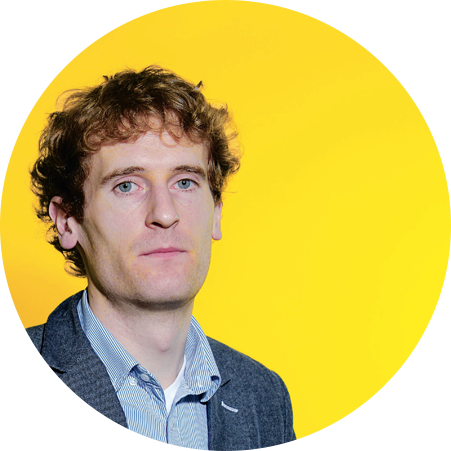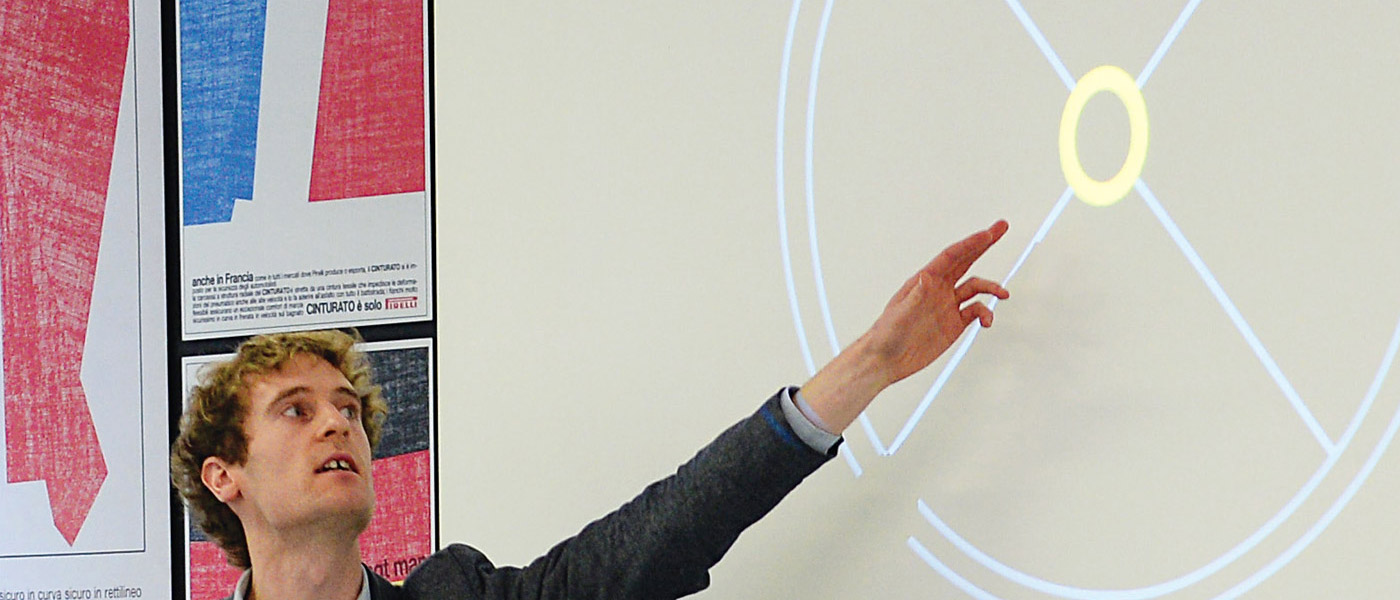
28 years old, IRISH
2013: Famelab International
2013: TEDx Dublin
2012: The Higher Education Authority/Irish Independent "Making an Impact" Award
As a science communicator, I am at the centre of information exchange between scientists and the public. This is like being at the centre of a wheel.
If the centre goes, then everything around it comes tumbling down.
Because I am at the centre of the wheel, I can move information from the various stakeholders associated with science, through the "spokes" of wheel (like in a bicycle).



Fergus McAuliffe is an Irish Environmental Scientist, studying the use of constructed wetlands as a means for the sustainable treatment of domestic waste water.
He has won numerous prizes for his ability to communicate scientific topics to a wide non-scientific audience, including winning FameLab International in 2013.
FameLab is an international science communication competition. Scientific concepts or ideas are communicated in three minutes or less and without the use of PowerPoint to a non-scientific audience. He also won the Higher Education Authority/Irish Independent "Making an Impact" Award in 2012, and has spoken at TEDx Dublin 2013 on how scientists and the public can reconnect.
Fergus is an Irish environmental scientist, chiefly interested in how to communicate scientific ideas and topics, normally esoteric and hermetic, to a wider non-scientific audience.
This is an important thing to do, and he believes passionately that science and knowledge must be disseminated to the public, a process that was started during the 19th Century.
Language and vocabulary and more generally transmission make communication difficult for the scientific community, and Fergus's presentation looked at tackling this problem, and of uniting these two distinct groupings.
His presentation considered ways in which to bridge this gap, and of garnering a two way communique between the groups; where science feeds from ideas generated by the general populace, and vice versa.
Like spokes on a wheel, communication, back and forth, generates the best ideas and the best feedback, and by pooling the efforts of scientists, journalists, schools, universities and the media, as well as the general public we can be most productive.
The spokes, the strands between these groups, reinforces and makes the wheel stronger and keeps us moving forward, intellectual and scientifically. In the same way that a wheel will facilitate drive and momentum, the interaction of the scientific community with the public, the media, academics, students and others can motivate and move their own work.
[Hanif Kureishi]
Do you consider your talent a gift or a burden?
I definitely don't see it as a burden. It has opened many doors for me and has taken me to places around the world that I never would have travelled to otherwise.
But, I don't see it as a gift either. It takes practice, feedback and more practice. A gift is something that you naturally have, something that comes effortlessly to you.
But I think it is important to continue to work at and improve my talent.
What you would do if one day you woke up and discovered you had lost your talent?
I would probably have a lot more time on my hands! No, seriously, I would try my best to work my way back to the same talent.
I don't think that it is something that can be lost for good. A lot of it is muscle memory and memorising words and phrases you are comfortable saying.
So I would try my hardest to regain my talent.
Who is the living talent you most admire?
I admire my parents. Both my father and mother are teachers, and so have a talent for teaching.
I think that this has rubbed off on me a little bit, as a lot of what I do as a science communicator is about teaching the public about scientific concepts.
Ever since I was a child, they would always satisfy my thirst for knowledge and I think they had a big part to play in encouraging me to pursue science in university.
What do you like about your talent and what don't you like?
One of the things I like a lot about my talent is that it has enabled me to control a room of people with my voice.
Sometimes, things can get very busy when you are a science communicator and also trying to finish your PhD at the same time.
So if there is anything that I don't like about my talent it is for a practical reason: it steals time from me finishing my PhD!
When or where does your talent make you happy?
I think I honed a lot of my skills as a science communicator and a public speaker being captain of sports teams.
One of the things I really looked forward to was making the pre-game speeches, getting my teammates psyched up for the game that we were about to play.
In these instances, everyone would be looking to me to see what I was going to say, and what direction I was going to give.
I would spend days preparing these speeches and practicing them. Just like preparing a science communication talk or presentation.
If you could change your talent, how you would change it?
If I was to change my talent somewhat, I would like to improve on being a photographer.
I find it important to use high quality images in my presentations as these often resonate with people.